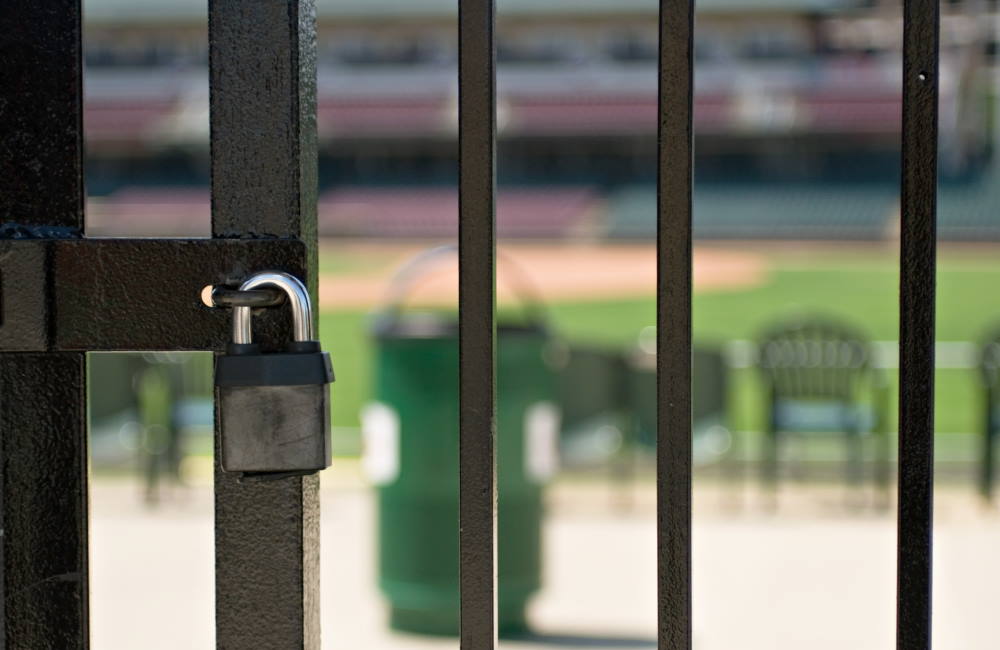Major League Baseball players and owners have become deadlocked many times in baseball history, with a total of nine MLB work stoppages since the first one in 1972. Until the current stoppage in 2022, which resulted in the loss of no games, a handful of these stoppages led to the loss of baseball games and, in one case, the World Series.
The just-ended strike lasted from Dec. 2, 2021 until March 20, 2022. The stoppage, caused by contention over issues such as free agency, the luxury tax, salary arbitration, minimum salaries and competitive integrity, ended 26 years of labor peace.
In the end, the stoppage resulted in a one-week delay until Opening Day. That’s far less impact than some of the MLB work stoppages of the past.
History of MLB Work Stoppages
Over the long course of Major League Baseball, there have been nine MLB work stoppages, many of which led to losing games. They include the following.
1994-1995 Strike
This strike, which lasted from Aug. 12, 1994 to March 21, 1995, led to the loss of the 1994 playoffs and World Series, the only time that has happened in baseball history. In all, it cost 948 games. The strike happened after owners attempted to put in a salary cap, such as the one the National Football League operates under. While the strike ended in March 1995, it took two more years of negotiating before owners and players signed off on a new collective bargaining agreement (CBA).
Best Baseball Moments in the 1990s
1990 Lockout
Owners locked out players after they refused to accept a salary cap – this was the owners first real run at establishing one. The stoppage lasted from Feb. 15 to March 18, 1990. The league did not lose any games, but did have to delay Opening Day a week. Most remember this strike because it led to the minimum salary for players hitting six figures, rising from $68,000 to $100,000.
1985 Strike
This lasted only three days, from Aug. 6-7, leading to the loss of two games. The main issues were minimum salaries – which were raised from $40,000 to $60,000 – and the players’ pension fund. Owners agreed to give cash infusions to the fund of $33 million every year for three years and then $39 million in the fourth year.
Best Baseball Moments in the 1980s
1981 Strike
Next to the 1994-1995 MLB work stoppage, the 1981 strike ranks as the worst in baseball history. The issues revolved around players wanting the right to become free agents sooner and team owners wanting compensation for losing free agents. The strike resulted in the loss of 713 games. MLB also used a split season approach to deciding who went to the playoffs, with the first place team before the strike facing off against the first place team after the strike in each of the then-four divisions.
1980 Strike
The 1980 strike lasted April 1-8 during spring training. This strike also was over free agency, which did not get resolved until the 1981 strike. However, for the 1980 season, players agreed to resume play, which led to no games lost.
1976 Lockout
From March 1-17, owners locked out players during spring training in protest of arbitrator Peter Seitz granting pitchers Andy Messersmith and Dave McNally free agency and federal judge John Oliver upholding the ruling. This resulted in the nullification of the reserve clause – first challenged by Curt Flood – that allowed teams to retain the rights of players even after a contract expired unless they were traded or released. During later negotiations, owners and players established the first framework for free agency.
Best Baseball Moments in the 1970s
1973 Lockout
This lockout lasted from Feb. 8-25, leading only to a delay in the start of spring training, but no loss of games. The issue in this lockout revolved around salary arbitration. The lockout ended with an agreement that allowed players with two years of consecutive MLB service time the right to settle contracts through arbitration.
1972 Strike
The first strike lasted from April 1-13. The issues involved included the rule around salary arbitration and pension funding. The owners eventually agreed to put an additional $500,000 into the fund. The strike led to the loss of 86 games.


Leave A Comment